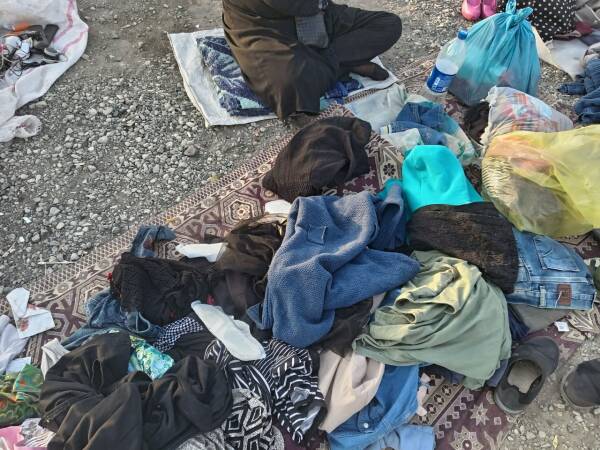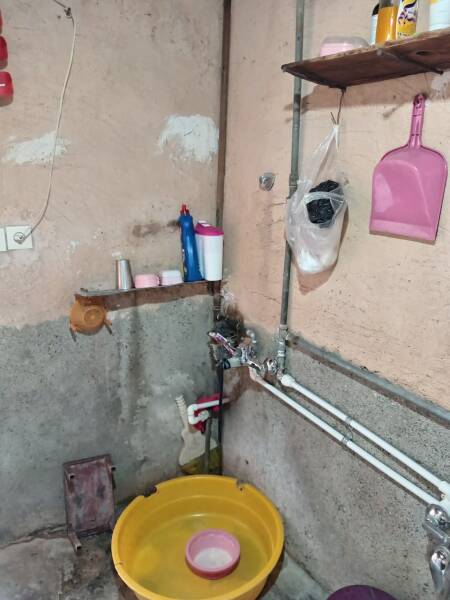Poverty and taboos threaten the menstrual health of women in Kermanshah.
In Kermanshah, many women face difficulties in accessing basic hygiene products such as sanitary pads due to poverty. In the region, lack of knowledge, unhygienic conditions, and social taboos threaten menstrual health.

NASIM AHMEDI
Kermanshah – In Kermanshah, Eastern Kurdistan, many women face serious difficulties in accessing basic hygiene products due to poverty. Sanitary pads used during menstruation are still considered difficult to obtain and even a luxury item for many women. According to the latest research published in September 2025 by Associate Professor Fahimeh Ranjbar, who works in the field of reproductive health, only 55% of women in Iran have access to sanitary pads or similar products during their menstrual periods. The results of the study reveal that nearly half of Iranian women lack access to sanitary pads and similar hygiene products, and this situation poses a serious threat to women’s health.
Vulnerable to infections
A midwifery student and women’s rights activist conducting fieldwork in Kermanshah shared her observations on the hygiene problems in the region:
“There is no doubt that many women still use old cloths as sanitary pads. This situation is widespread in Kermanshah, but especially more evident in Anahita, Chaman, Nokan, and surrounding areas. According to our fieldwork, the number of women using sanitary pads in these areas is quite low. Those who do use them often cannot do so hygienically, since the places where they buy and store pads are not sanitary. It is not only about pads – underwear is also a serious problem. Unfortunately, many women living in the outer neighborhoods of Kermanshah are forced to use the same underwear for years. Some even choose expired sanitary pads because they can buy them much cheaper from street vendors. This situation leaves women vulnerable to all kinds of infections and diseases.”
Women turn to second-hand sellers

In Kermanshah, many women turn to second-hand sellers in the Friday market to meet their basic needs such as underwear and sanitary pads. However, underwear is often sold in unsanitary conditions, spread out on the ground; sanitary pads are presented individually and without packaging, mixed among old clothes. Purchasing hygiene products in such unhealthy conditions is only one aspect of the menstrual hygiene crisis women in Kermanshah are experiencing. One of the bigger problems is that the general sanitary conditions of the areas where these women live are extremely inadequate. The toilets and bathrooms where they are forced to change their sanitary pads or cloths are usually unclean and carry a high risk of infection.
‘Women never go to a gynecologist’
The midwifery student emphasized that the lack of menstrual hygiene has not only physical but also social and cultural consequences:
“Obtaining products like sanitary pads and underwear from unhealthy places, or using old cloths instead, causes serious infections in women. The majority of marginalized women in Kermanshah never go to a gynecologist for these infections. Many even consider yeast discharge or symptoms of vaginal infection to be normal. They are ashamed to talk about issues related to women’s health, and therefore do not share their menstrual experiences or illnesses with those around them. This lack of knowledge causes these women to go through their menstrual periods with wrong and unhealthy methods until menopause. They unknowingly pass on the false information and taboos they have acquired to their children. This creates a cycle of ignorance and unhealthy practices regarding menstrual hygiene, passed down from generation to generation.”
Systematic discrimination

Maria K., a 30-year-old woman living in the Anahita neighborhood of Kermanshah, explained the lack of knowledge about menstruation: “When I first got my period, I had no knowledge about it. I hid the situation from my family. A few days later, my mother noticed the blood stains on my clothes and realized that I had started menstruating. She gave me a few pieces of cloth to use instead of sanitary pads.”
The lack of knowledge about menstruation and the difficulties women face in accessing healthcare services are the result of ineffective government policies. The government not only ignores the basic problems of women but also belittles their roles in society and tries to isolate them. The fact that half of the women in Iran cannot access even the simplest hygiene products shows how oppressed women are by the government and how they are subjected to systematic discrimination.
Training on pad usage provided
Marzieh S., a civil society activist who shared with our agency the work they carried out in the Jafarabad neighborhood of Kermanshah, said:
“About three years ago, we distributed sanitary pads and underwear to women for the first time. Many women were owning sanitary pads for the first time and did not know how to use them; so we provided training to many women on how to use pads. Almost none of them had any knowledge about tampons, and explaining how to use tampons or menstrual cups was perceived as an insult. In fact, when we explained about the use of menstrual cups, we faced negative reactions. Nearly 90% of the women there did not allow their unmarried daughters to attend menstrual health training, because they believed that since they were unmarried, they did not need to learn about menstruation.”
